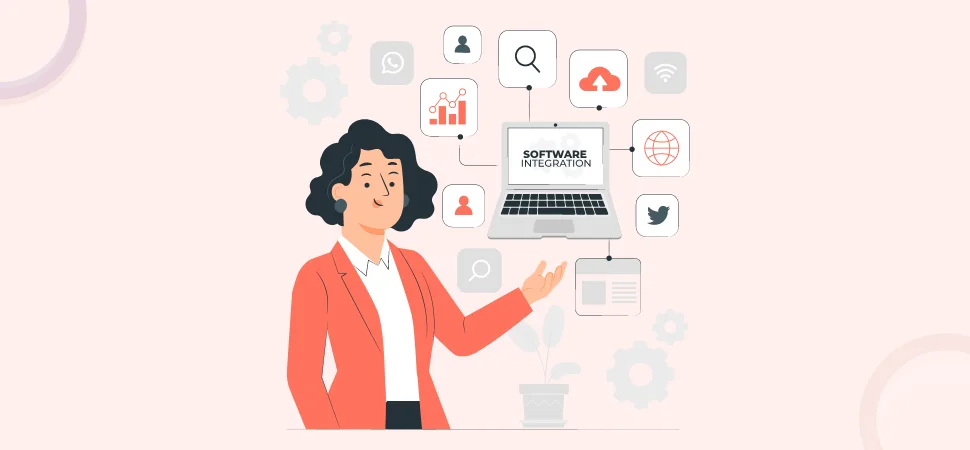How to Develop a White-label app?
Introduction
As the demand for mobile applications continues to surge, businesses are keen on expanding their digital footprint. Whether you're a business in need of a customized app, a software development vendor, or an advertiser, there are multiple avenues to tap into this growing trend.
In our view, the most rapid and straightforward approach to harnessing the mobile device boom is by creating and selling white-label apps. Now, you might be wondering, what exactly is a white-label app, and how can building one enhance your financial success? This guide is your roadmap to understanding the intricacies of white-label application development, providing you with a detailed walkthrough for capitalizing on this ever-growing market.
So, without any further ado, let's get started with the basics.
What is a White-label app?
A white-label app is a software application developed by one company but rebranded and resold by another under its own brand. In this context, "white label" refers to a blank or generic label that can be customized with the branding of the purchasing company. Essentially, the original developer creates a product or service that is generic enough for other businesses to repackage and sell as their own.
White-label apps are commonly used in various industries, such as technology, finance, and e-commerce, allowing businesses to offer customized solutions without investing in the full development process. This approach provides a quicker time-to-market and allows companies to focus on marketing and branding rather than building the entire app from scratch.
How White-label apps are different from normal apps?

The key differences between white-label apps and normal apps lie in their development, branding, and deployment processes. Let's delve into these aspects in detail:
Development Ownership
A normal app is developed by a company or individual with the intent of releasing and maintaining it under its own brand. The developer retains ownership and control over the entire development process. On the other hand, White-label apps are developed by one company but are intended to be rebranded and resold by other businesses. The emphasis is on creating a generic, adaptable solution that can be easily customized for different clients.
Branding and Customization
The branding of a normal app is specific to the company or individual that developed it. The app's name, logo, design, and overall appearance reflect the identity of the original creator. On the other hand, White-label apps are intentionally designed to be rebranded. The original developer creates a generic version that can be easily customized with the branding elements (such as logo, colour scheme, and name) of the purchasing company. This allows businesses to present the app as if it were their own creation.
Time-to-Market
Developing a custom app from scratch can be time-consuming. The entire process, from conceptualization to deployment, may take a significant amount of time. On the other hand, Since the core functionalities of a white-label app are already developed, businesses can significantly reduce their time-to-market. Customization efforts primarily focus on adapting the app to the specific needs and branding requirements of the purchasing company.
Cost Efficiency
Building a custom app involves substantial upfront development costs. Companies bear the expenses of creating the entire application, including research, design, development, and testing. On the other hand, The initial development costs of white-label apps are typically shouldered by the original developer. Businesses that purchase white-label apps benefit from a cost-effective solution, paying for customization and licensing rather than the entire development process.
Flexibility and Adaptability
Custom apps are tailored to the specific needs and requirements of the developing company. Any changes or adaptations must be handled by the original development team. While on the other hand, white-label apps are designed to be adaptable for various clients. The purchasing company can customize certain features, design elements, and branding to meet its specific demands without requiring deep technical expertise.
Also Read: A Complete Guide on Android & iOS Mobile App Development
Why you should invest in white label platform?

Investing in a white-label platform can offer several advantages depending on your business goals and circumstances. Here are some reasons why you might consider investing in a white label platform:
Time and Cost Efficiency
Developing a product or service from scratch can be time-consuming and expensive. White label solutions allow you to leverage pre-built, tested, and ready-to-use platforms, saving both time and money.
Faster Time-to-Market
With a white label platform, you can quickly bring your product or service to market. This is particularly advantageous in fast-paced industries where being the first to market can provide a competitive edge.
Focus on Core Competencies
White-label solutions enable you to concentrate on your core competencies while relying on the expertise of the white-label provider for non-core functions. This can improve overall efficiency and effectiveness.
Reduced Risk
White-label platforms are often proven and established in the market. This can reduce the risk associated with developing a new solution from scratch, as you're building on a foundation that has already been tested and validated.
Customization Flexibility
While white-label solutions provide a pre-built foundation, they often allow for customization to align with your brand and specific requirements. This flexibility can save you from the complexities of starting from scratch while still allowing you to tailor the solution to your needs.
Access to Expertise
White-label providers typically specialize in their field, meaning you can benefit from the expertise and experience of professionals who have already addressed challenges and refined their solutions.
Scalability
White-label platforms are often designed to be scalable, accommodating growth as your business expands. This scalability is crucial for businesses that anticipate increasing demand and need a platform that can grow with them.
Brand Establishment
By white labelling a proven platform, you can establish your brand quickly without the need to build a reputation from scratch. This can be especially advantageous in industries where brand recognition is essential.
Compliance and Security
Established white-label providers often have robust security measures and compliance standards in place. By utilizing their platform, you can benefit from these features without having to invest heavily in developing them yourself.
Customer Support
Many white-label providers offer ongoing support and maintenance, relieving you of the burden of managing technical issues. This can be particularly valuable, especially if you lack the resources or expertise in certain areas.
Features & Functionality of the white-label app

The features of a white-label app can vary based on the specific purpose and industry it serves. However, here are some common features that are often found in white-label apps across different domains:
User Authentication
Secure login methods to authenticate users and control access to the app's features and content.
Content Management System (CMS)
An easy-to-use CMS that enables businesses to update and manage content within the app, including text, images, videos, and other multimedia.
Push Notifications
The ability to send push notifications to users' devices, keeping them informed about updates, promotions, or important information.
Analytics and Reporting
Built-in analytics tools for tracking user engagement, behaviour, and other key performance indicators, helping businesses make data-driven decisions.
Monetization Options
Support for various monetization strategies, such as in-app purchases, subscription models, or advertising, depending on the business model.
Social Media Integration
Seamless integration with social media platforms enables users to share content, log in using social credentials, or connect with their social networks.
Feedback and Ratings
Features that allow users to provide feedback, ratings, and reviews, helping businesses gather insights and improve the app.
Offline Mode
Functionality that allows users to access certain features or content even when they are offline, enhancing user experience.
Multi-platform Support
Compatibility with multiple platforms, such as iOS, Android, and web, to reach a broader audience.
Customizable Templates
Pre-designed templates that businesses can customize to create a unique look and feel for their app without starting from scratch.
In-App Chat or Messaging
Communication features that enable users to interact with each other or with customer support directly within the app.
Geolocation Services
Integration with geolocation services for location-based features, such as maps, check-ins, or personalized content based on user location.
Scalability
Architecture that allows the app to scale as the user base and feature set grow, accommodating business expansion.
Customer Support Integration
Integration with customer support tools, such as chat support or helpdesk systems, to assist users when they encounter issues.
Compliance and Regulation
Features to ensure that the app complies with industry regulations and standards, providing a trustworthy and legal framework.

Wrapping up
In closing, the world of white-label apps opens up possibilities for businesses of all sizes. As we've explored the intricacies together, remember that the journey doesn't end here – it's a continuous process of adaptation and growth. Embrace the flexibility, speed, and scalability that white-label solutions bring to the table. Now, armed with insights and a clear roadmap, venture into the app development landscape and confidently make your mark. Happy developing!
Unlock the potential of white-label apps for unparalleled growth. Start building your success story today!
Recent Blogs:
How to Come Up with New App Ideas To Make Mon...
Generating lucrative app ideas requires creativity, market research, and a keen grasp of use...
Read More
How to Create a Successful Mobile App-based S...
Learn how to create a successful mobile app startup with steps on research, development, fun...
Read More
Top 8 Advantages of On-Demand Apps | Build an...
On-demand apps- Looking to take your business to next level? checkout these top 8 advantage ...
Read More